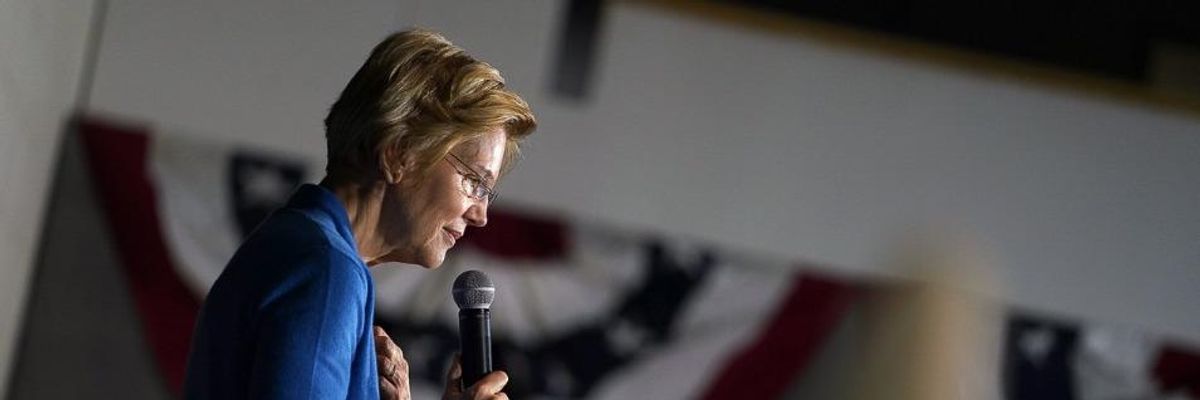Doubling down on her assertion that the richest Americans can and must contribute to the larger economy and the greater good with just a tiny fraction of their massive wealth, Sen. Elizabeth Warren (D-Mass.) on Tuesday unveiled a plan to use her proposed Ultra-Millionaires Tax to fund a universal childcare program.
Offering what she calls a "big structural change" to provide families with a "fundamental right," the 2020 presidential candidate's proposal would make high-quality childcare free or inexpensive for every American family. The government would partner with local providers "to create a network of child care options that will be available to every family," Warren said.
"We can provide affordable and high-quality child care and early learning options for every American just by asking people with more than $50 million to pay their fair share," Warren said in an emailed statement sent to her supporters. "We can do this--and we must. We're the richest country on the planet. We shouldn't be denying our kids the high-quality early education they need. And we shouldn't be letting millions of families drown under rising child care costs."
"Child care is one of those things we've got to do for working parents and we've got to do for our children." --Sen. Elizabeth Warren (D-Mass.)
Childcare costs are rising in the U.S., with families paying between nine and 36 percent of their income to ensure that young children are taken care of when they're working--an average of about $7,200 per year, according to Moody's Analytics economist Mark Zandi, who analyzed Warren's proposal.
Under Warren's plan, childcare would be free for families who live 200 percent below the federal poverty line. Families who live above the poverty level would pay subsidized rates at early childhood centers that partner with the government, with no household paying more than seven percent of their income for childcare.
Supporters of the plan on social media, including Jared Bernstein of the Center on Budget and Policy Priorities (CBPP), praised the plan.
Warren introduced the proposal about a month after unveiling her Ultra-Millionaires Tax plan, which would levy a two percent tax on households with more than $50 million in assets and a three percent tax on those with more than $1 billion. Some of the revenue from the plan would be used to pay for universal childcare.
Warren's childcare plan is expected to cost $700 billion over ten years, according to Zandi. Economists estimate that the Ultra-Millionaire tax would generate $2.75 trillion over the same amount of time and would affect a fraction of the wealth of 0.1 percent of American households--while investing in the early childhood development of at least 12 million young children.
A New York Times report last year about why birth rates are falling in the U.S. showed that the expense of childcare was the number one reason Americans are having fewer children, with 64 percent of people reporting in a Morning Consult poll that they were avoiding having children because of the cost.
Republican leaders in recent years have called on Americans to have more children in order to keep the country's workforce strong--while pushing policies like President Donald Trump's $1.5 trillion corporate tax cut instead of proactive plans to make child-rearing more accessible for families.
"Child care is one of those things we've got to do for working parents and we've got to do for our children," Warren told her supporters Tuesday, sharing her own experience of struggling to find care for her own children when she was a young working mother.
One supporter summed up the central question suggested in Warren's proposal: "Do we value someone's tenth yacht over our own children?"

